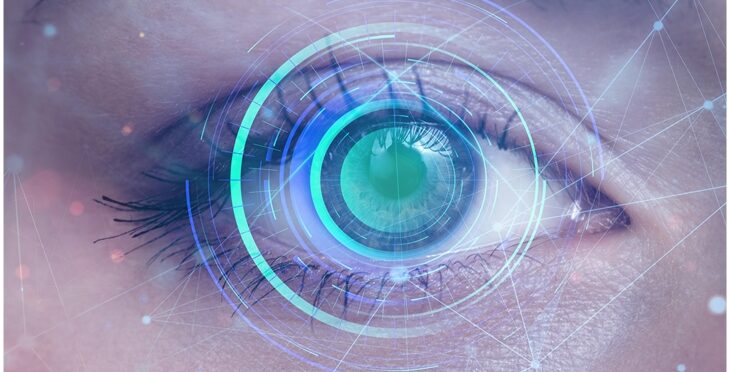Specialized Retina Service Near Me: Top-Notch Eye Care Professionals
Specialized Retina Service Near Me: Top-Notch Eye Care Professionals
Blog Article
Recognizing the Different Eye Issues Treated by Specialized Eye Treatment Professionals
In the world of eye care, specialized professionals play a critical function in diagnosing and treating a wide array of eye conditions. From typical refractive errors that affect vision clarity to age-related conditions that position difficulties as we age, the competence of these specialists includes taking care of vision-threatening illness and intricate corneal disorders. Additionally, the complexities of neurological eye problems existing special difficulties that necessitate specialized treatment. As we embark on this exploration of the various eye conditions attended to by specialized eye care experts, it comes to be apparent that the elaborate internet of eye health and wellness holds a myriad of fascinating insights waiting to be uncovered.
Usual Refractive Mistakes
Refractive mistakes are common aesthetic problems caused by a blemish in the eye's capacity to appropriately focus light, leading to blurred vision. The most common types of refractive mistakes include nearsightedness (nearsightedness), hyperopia (farsightedness), astigmatism, and presbyopia. Nearsightedness takes place when the eyeball is also long or the cornea is too rounded, causing distant things to appear blurry. Hyperopia, on the other hand, occurs when the eyeball is as well brief or the cornea is also level, resulting in neighboring things being out of emphasis. Astigmatism is defined by an irregularly designed cornea, causing altered or obscured vision at all distances. Presbyopia is an age-related problem where the lens loses its versatility, making it hard to concentrate on close things.
These refractive errors can be dealt with with various methods, consisting of glasses, contact lenses, or refractive surgical procedure. Eye care professionals play a vital function in detecting and managing refractive mistakes to aid individuals attain clearer vision and improve their quality of life.
Age-Related Eye Problems
One of the most prevalent age-related eye conditions is age-related macular deterioration (AMD), an illness that causes central vision loss and can make tasks like analysis and driving challenging. Cataracts, an additional usual problem amongst older people, trigger clouding of the eye's all-natural lens, leading to blurred vision. Routine eye examinations with specialized eye treatment professionals are vital for very early discovery and monitoring of these age-related eye conditions to protect vision and maintain ocular wellness as people expand older.
Vision-Threatening Illness
Vision-threatening illness encompass a series of major eye conditions that have the potential to significantly influence a person's sight and general visual function. These conditions present a threat of permanent vision loss if not quickly diagnosed and dealt with by specialized eye treatment experts. Some common vision-threatening conditions consist of glaucoma, diabetic retinopathy, age-related macular deterioration (AMD), and retinal detachment.
Glaucoma is a team of eye problems that damage the optic nerve, usually due to high intraocular stress, leading to outer vision loss and possible blindness if left useful content unattended. AMD click site is a progressive problem impacting the macula, leading to main vision loss.
Early detection, normal eye tests, and timely intervention are essential in handling vision-threatening diseases to maintain eyesight and keep lifestyle. Specialized eye treatment professionals play a vital role in diagnosing, dealing with, and managing these conditions to prevent irreparable vision loss.

Corneal Problems
Corneal disorders encompass a spectrum of conditions that influence the clear front part of the eye, understood as the cornea. Therapy for corneal disorders differs depending on the details problem but may include medications, contact lenses, or in extreme instances, corneal transplants. Normal eye tests are necessary for very early discovery and management of corneal conditions to protect vision and eye health.
Neurological Eye Conditions
Neurological eye conditions include conditions that affect the connection in between the eyes and the brain, affecting aesthetic handling and general eye feature. These conditions can manifest in numerous methods, influencing vision, eye motions, and even the control between the eyes. One usual neurological eye condition is optic neuritis, characterized by inflammation of pop over to these guys the optic nerve causing vision loss, color desaturation, and discomfort with eye movement.
One more considerable problem is nystagmus, where the eyes make repetitive, unchecked motions, influencing visual acuity and deepness assumption. Additionally, problems like amblyopia, often described as "careless eye," arise from unusual aesthetic development in early youth, leading to decreased vision in one eye.
Neurological eye conditions need specialized care from experts like neuro-ophthalmologists who have proficiency in both neurology and ophthalmology. Diagnosis commonly includes an extensive eye exam, imaging research studies, and partnership with specialists to attend to the underlying neurological problems affecting the visual system. Treatment techniques can include medication, vision treatment, or in serious cases, medical interventions to manage these intricate conditions efficiently.

Conclusion
In final thought, specialized eye treatment experts treat a large range of eye problems, including typical refractive mistakes, age-related eye problems, vision-threatening conditions, corneal disorders, and neurological eye problems - refractive surgeries in al. By understanding these various conditions and seeking proper therapy from eye treatment professionals, people can maintain ideal eye health and vision. It is essential to prioritize regular eye exams and comply with suggested therapy plans to preserve and safeguard one's vision for the future
Report this page